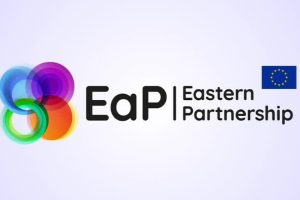This week, the Turin Polytechnic University in Tashkent hosted a workshop on the issues of transparency and openness in the public procurement sector in Uzbekistan. The event was organized by the World Bank in partnership with the National Agency for Project Management (NAPM) and the State Investment Committee (SIC) of Uzbekistan.
Around 100 participants, including officials of various ministries and state agencies, as well as representatives of the private sector, participated in the event. They were informed about the World Bank procurement regulations under its projects, the contribution of this international financial institution (IFI) in development of national public procurement systems across the globe, and the results of the implementation of the Public Procurement Law adopted in April 2018 in Uzbekistan.
Mr. V. S. Krishnakumar, World Bank’s Practice Manager for Solutions and Innovations in Procurement for the Europe and Central Asia region, who paid a visit to Uzbekistan on 21-26 September, was one of the two key speakers of the event.
“We congratulate the Government on adoption of the Public Procurement Law. This important piece of legislation that has significantly improved the integrity, transparency, and openness of the public procurement system in the country. We are happy that the World Bank experts have contributed to its development. We will continue providing support to the Government in reforming this crucial sector of the public management”, Mr. Krishnakumar said during his presentation.
“In order to modernize Uzbekistan’s public procurement system, the Government will need to take additional measures. Firstly, dramatically improve the effectiveness of procurement operations through behavior change, balancing compliance and performance. Secondly, establish some form of performance rewards system to recognize good performing contracting entities/implementing agencies and individuals for bringing value for money decisions, and promoting anti-corruption measures using modern technologies. Thirdly, integrate innovations, digital solutions, and data analytics in public procurement, contract management and implementation, including in physical verification and auditing work. And last, but not least, invest in capacity building and improving the professionalism of procurement and contract management officials”, Mr. Krishnakumar added.
The event participants representing the private sector had a constructive and candid exchange with both speakers after their presentations and got clarifications both on the procedures for procurement goods and services for the state needs and under the World Bank-sponsored projects.
Following the workshop, Mr. Krishnakumar and Mr. Kongratbay Sharipov, Rector of Turin Polytechnic University, signed a Memorandum of Understanding between the World Bank and the University. It sets up a framework for cooperation in the area of delivering training programs on procurement policy and procedures of the World Bank and other IFIs. The Bank will also support the development of procurement capacity of the given higher education establishment. This is the second MOU the World Bank has signed with the local universities. The similar treaty was concluded with Tashkent Financial Institute in October 2017.
During his stay in Uzbekistan, Mr. Krishnakumar also visited Bukhara Region to study a World Bank-supported project in the area of water supply and sanitation that will benefit several hundred thousand local residents.
In Tashkent, he had meetings with the NAPU and the SIC senior officials to discuss the World Bank’s further support in public procurement reform and capacity building in Uzbekistan, as well as with the British Embassy and IFIs to consider opportunities for further collaboration in this field.




